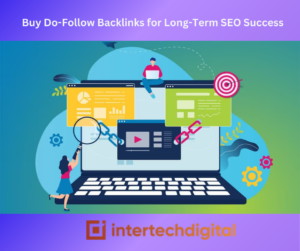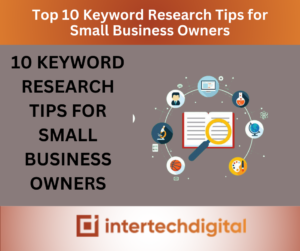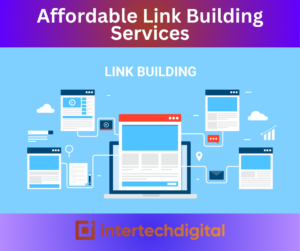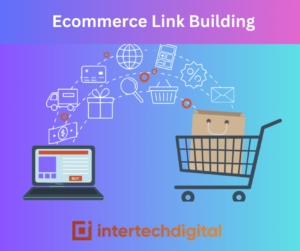Having the best website possible is one of the Best Local SEO Tips. When it comes to optimizing for local results, many of the ideas of broad SEO come in handy.

Location-Specific Landing Pages
Each of your locations should have its own page on your website, which you may optimize. All of the elements can be modified for that unique place by having a separate page.
Make sure your site follows a logical hierarchy of area, city/town, and location.
A good location page should have a mix of practical information, such as maps and hours of operation, as well as information on why someone should visit. Make sure these pages are helpful in their own right, as having a bunch of pages with nearly identical content can be a problem if Google thinks you’re doing it for SEO rather than for people. Giving each site its own unique description might be difficult, so here are some suggestions:
- Contact information and address
- Hours of operation
- A link to the location’s Google My Business listing
- An overview of the offered products and services
- A Google Map with your location pin in place is integrated.
- Directions for travel
- Photographs and videos (with transcriptions)
- If the individual location has social media accounts, they should be listed.
- Areas served by or covered by those who work out of the place.
- Customer testimonials, case studies, examples of work, or reviews (more on these later).
- Any involvement with the community, such as events or sponsorships
Check out Search Engine Land fantastic guide for further tips on how to optimize your website’s local landing pages.
Read More: 6 SEO Tips & Tricks for Local Businesses
Adding the words “town” and “country” to your Title Tags
Make sure to include your location in the title tag for each page you wish to rank for a specific place, in the pattern [town], [county]. This could look like this:
In Thame, Oxfordshire, there is an authentic Chines restaurant and takeaway.
Of course, many UK counties have long names, so if you’re limited on space (title tags can have a maximum of 160 characters), using common postal abbreviations will help:
You can include this information on your homepage, contact page, and essential landing pages if you only have one location. You must perform this for each location’s landing page if you have several locations.
Otherwise, make the most of your title tags by following best practices — they’re one of the most significant aspects of local SEO, so make the most of them! In an ideal world, we’d concentrate on the keywords we want to rank for, as well as our location, while also describing the page and making it as appealing as possible. You can also use preview tools to try out various concepts.
After you’ve done this for your title tags, try to include the location in your main header (also known as the h1 tag) and URL (address) of your landing pages, as well as keywords in the alt tags for any images.
Meta Descriptions Should Include Geographic Terms.
Despite the fact that the meta description tag isn’t used as a ranking indication, the search results will highlight any terms used by the searcher, making them stand out. As a result, using regional terms in your search results can help direct the searcher’s attention to your listing.
It’s a good idea to think of your snippet (your site’s listing in the search results) as an advertisement. This is your moment to make a good first impression, so make sure your title and meta descriptions reflect what you have to offer.
Make Sure Your N.A.P is Correct and Visible.
The acronym NAP stands for Name, Address, and Phone Number, and it’s a key notion in local SEO. So it’s critical to get it right the first time.
Having this information on your homepage and contact page is a must if you only have one location, but having it on every page should be your goal. Google, like any other user, wants to find your contact information quickly. Therefore, the relevant NAPs will be housed on their own landing pages if you have numerous locations.
Google must recognize your location, and it considers the NAP information on your site and external sites as a ranking factor. Consider switching to a local number if you have a toll-free number, a mobile number, or a call-tracking number set up for your website. This, too, can aid in demonstrating your location.
To Draw Attention to a NAP, Use Semantic Markup.
Without going into too much detail about code… Semantic markup is code that can be added to a website to help computers and programs outside of the site, such as search engines, comprehend what the material is about.
We may use this markup to authenticate our location and contact information with Google for local SEO.
You might need some assistance with this, but if you’re comfortable altering code, you can learn how to utilize Schema.org’s local business markup to highlight your address. If you have a larger development budget, JSON-LD is another option. Don’t worry if it doesn’t make sense to you; there’s also a Data Highlighter option that allows you to highlight data with your mouse.
You may also use structured markup to draw attention to any reviews you have on your site.
Once your code is complete, run it via Google’s structured data testing tool to see if there are any errors.
Create material with a local focus.
Locally-focused material can assist us in demonstrating to search engines that we are extremely relevant for a location, as well as gain importance by having others share our site.
What Exactly Do We Mean?
Using our site’s (often underappreciated) blog to communicate what’s going on in our community and how we’re getting involved helps alleviate the frequent problems of ‘I don’t know what to write’ and ‘My business is uninteresting,’ which stifle many initiatives.
You are not required to write completely about your company. Instead, write about what’s going on in your neighborhood and turn it into a local news source. Share what’s going on in your area. You’ll have a steady stream of posts and lots of opportunities to employ local terminology if you use the local region for inspiration and make it a part of your content strategy.
This is a large topic that deserves its own guide. So, to get you started, we recommend reading Intertech Digital Blog fantastic post!
More Resources: THE BENEFITS OF LOCAL SEO OPTIMIZATION
More Resources: How to Make Your Google My Business Listing Completely Optimized



